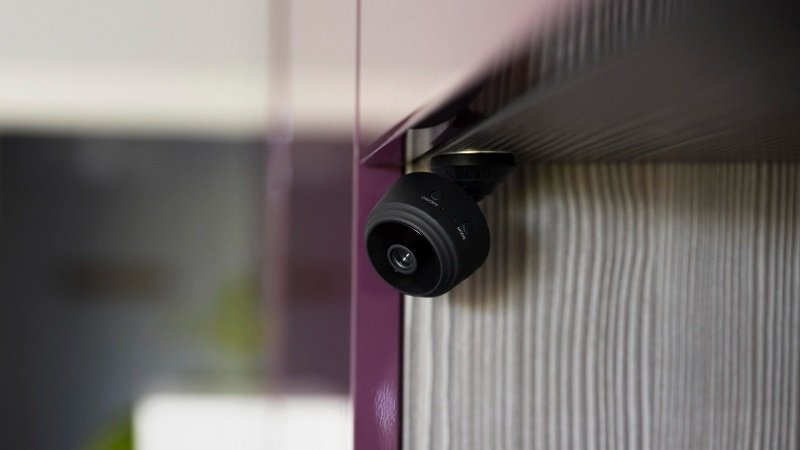Smart Security Systems for Home Safety
In today’s world, it is more important than ever to have a secure home. Smart security systems offer a number of benefits for home safety, including remote control, automated alerts, and smart home integration.

Remote Control
With a smart security system, you can control your security from anywhere with internet access. You can arm and disarm your system, check your sensors, and receive alerts if there is a break-in, even when you’re not at home.
Automated Alerts
You can set up smart security systems to notify you when something happens in your home, like when a door or window is opened or a motion sensor detects movement. This way, you can keep track of what’s going on in your home, even if you’re not there.
Smart Home Integration
You can connect many smart security systems with other smart home devices like lights, thermostats, and locks. This connection lets you set up automatic processes for boosting your home’s security. For example, you can set the system to turn on the lights and unlock the door when you get home or to arm the system and lock the doors when you leave.
Benefits of Smart Security Systems
There are many benefits to using a smart security system for home safety, including:
- Increased security: Smart security systems can help to deter burglars and keep your home safe.
- Peace of mind: Knowing that your home is secure can give you peace of mind, even when you’re not there.
- Convenience: Smart security systems can be controlled from anywhere, so you can arm or disarm your system from your smartphone or tablet.
- Flexibility: Smart security systems can be customized to fit your needs, so you can choose the features that are most important to you.
Types of Smart Security Systems
There are a number of different types of smart security systems available, including:
Wireless systems:
Wireless systems are easy to install and do not require any hardwiring. This makes them a good option for renters or people who do not want to damage their walls.
Z-Wave systems:
Z-Wave systems are a type of wireless system that uses a low-power radio frequency. This makes them a good option for homes with a lot of wireless devices, as they will not interfere with your other devices.
Wi-Fi systems:
Wi-Fi systems are a type of wireless system that uses your home’s Wi-Fi network. This makes them a good option for homes that already have a Wi-Fi network.
Cost of Smart Security Systems
The cost of a smart security system can range from around $100 to $1,000, depending on the features and brand. Here is a breakdown of the average cost of smart security systems:
- Budget: $100 – $300. These systems typically have basic features, such as door and window sensors, motion detectors, and a siren.
- Mid-range: $300 – $600. These systems offer more features, such as Wi-Fi connectivity, voice control, and remote access.
- Premium: $600 – $1,000. These systems have the most features, such as professional monitoring, cellular backup, and smart home integrations.
The cost of monthly monitoring for a smart security system also typically ranges from around $20 to $40, depending on the features included.
Here are some of the factors that can affect the cost of a smart security system:
- Features
- Brand
- Type
- Monitoring
No matter what your budget is, there is a smart security system that is right for you. Do some research and compare the different options before making a decision.
| Price Range | Features | Type | Monthly Monitoring Cost |
|---|---|---|---|
| $100 – $300 | Basic features, such as door and window sensors, motion detectors, and a siren | DIY | $20 – $30 |
| $300 – $600 | More features, such as Wi-Fi connectivity, voice control, and remote access | DIY | $20 – $40 |
| $600 – $1,000 | Most features, such as professional monitoring, cellular backup, and smart home integrations | Professionally Installed | $30 – $50 |
How to Choose a Smart Security System?
There are a few things to consider when choosing a smart security system, including:
- Your needs: What features are important to you? Do you need a system with remote control, automated alerts, or smart home integration?
- Your budget: How much are you willing to spend?
- Ease of installation: How easy is the system to install? Do you need to hire a professional?
- Warranty: How long is the warranty?
| Features | Key Points |
|---|---|
| Remote Control | – Control security system remotely from anywhere with internet access. – Arm/disarm system, check sensor status, and receive alerts even when away from home. |
| Automated Alerts | – Smart security systems send alerts for any activity in your home. – Get notified about doors/windows opening or motion sensor triggers. |
| Smart Home Integration | – Integrate smart security with other devices like lights, thermostats, and locks. – Create custom automations to enhance home security. |
| Benefits of Smart Security | – Increased security and burglary deterrence. – Peace of mind with a secure home even when away. – Convenient control from smartphones or tablets. – Customizable features based on individual needs. |
| Types of Smart Security | – Wireless systems: Easy installation without hardwiring. – Z-Wave systems: Low-power radio frequency for interference-free operation. – Wi-Fi systems: Utilizes home Wi-Fi network for connectivity. |
| How to Choose a System | – Consider needed features like remote control, alerts, and integration. – Determine budget and ease of installation. – Check warranty terms. |
Conclusion
Smart security systems offer a number of benefits for home safety. If you are looking for a way to improve the security of your home, a smart security system is a great option.
Here are some additional tips for choosing a smart security system:
- Do your research: Read reviews and compare different systems before you buy.
- Get quotes from multiple companies: This will help you get the best deal.
- Make sure the system is compatible with your home: Not all systems are compatible with all homes.
- Consider the features you want: Do you want a system with remote control, automated alerts, or smart home integration?
- Ask about the warranty: How long is the warranty?
By following these tips, you can choose the right smart security system for your needs and keep your home safe.
“Your feedback helps us understand what you are looking for in a blog post and how we can improve our content. We appreciate your time and effort in taking the time to leave a comment or share our blog post.”
FAQs:
1. What are the benefits of using a smart security system?
- Smart security systems can help to deter burglars and keep your home safe.
- They can give you peace of mind, even when you’re not there.
- They can be controlled from anywhere, so you can arm or disarm your system from your smartphone or tablet.
- They can be customized to fit your needs, so you can choose the features that are most important to you.
2. What are the different types of smart security systems?
- Wireless systems are easy to install and do not require any hardwiring.
- Z-Wave systems are a type of wireless system that uses a low-power radio frequency.
- Wi-Fi systems are a type of wireless system that uses your home’s Wi-Fi network.
3. How do I choose the right smart security system for my needs?
- Consider your needs. What features are important to you? Do you need a system with remote control, automated alerts, or smart home integration?
- Consider your budget. How much are you willing to spend?
- Ease of installation. How easy is the system to install? Do you need to hire a professional?
- Warranty. How long is the warranty?
“If you enjoyed this post, you might also like”
The benefits of smart home automation for energy efficiency!
Top 10 Smart Home Automation Devices
The Evolution of Smart Home Automation: Tracing the history of smart home Technology

